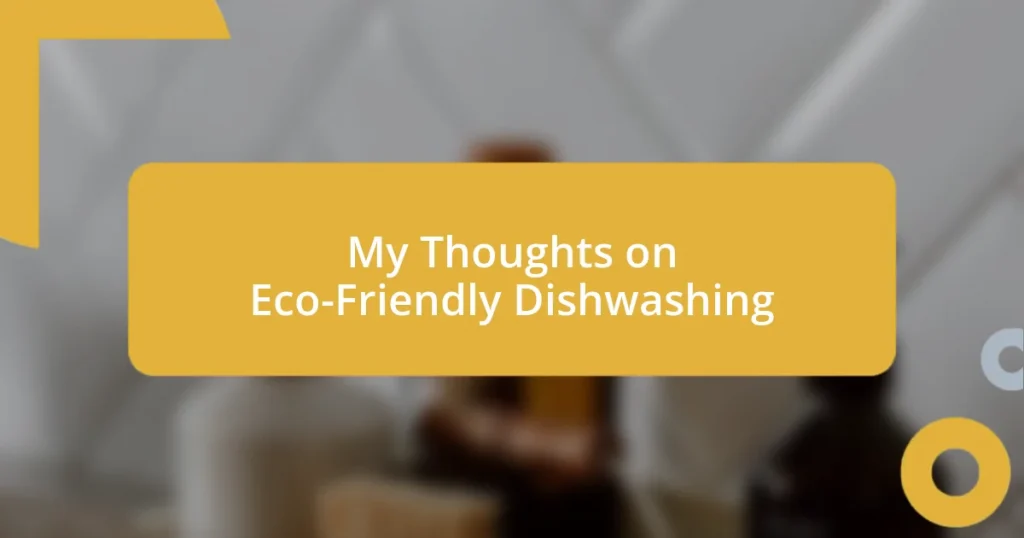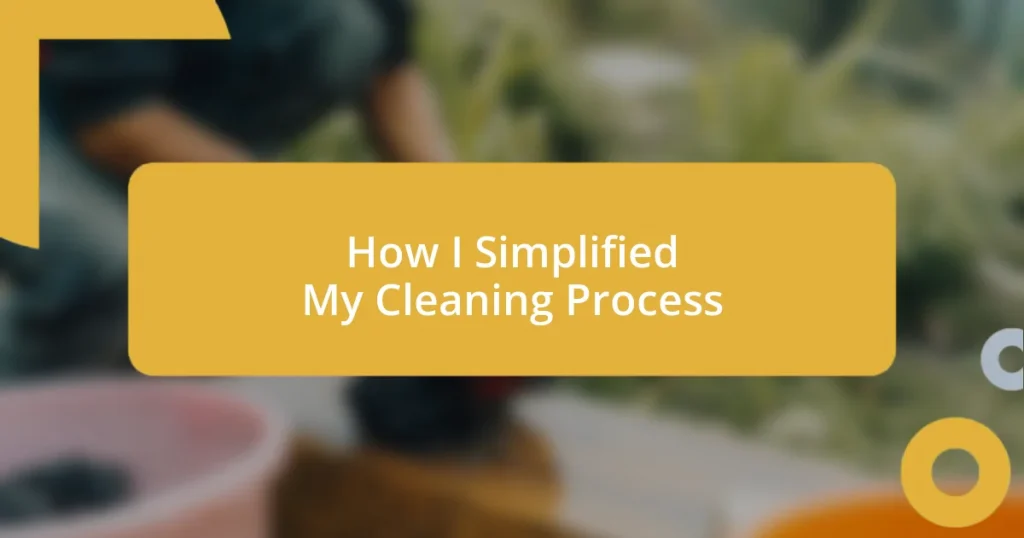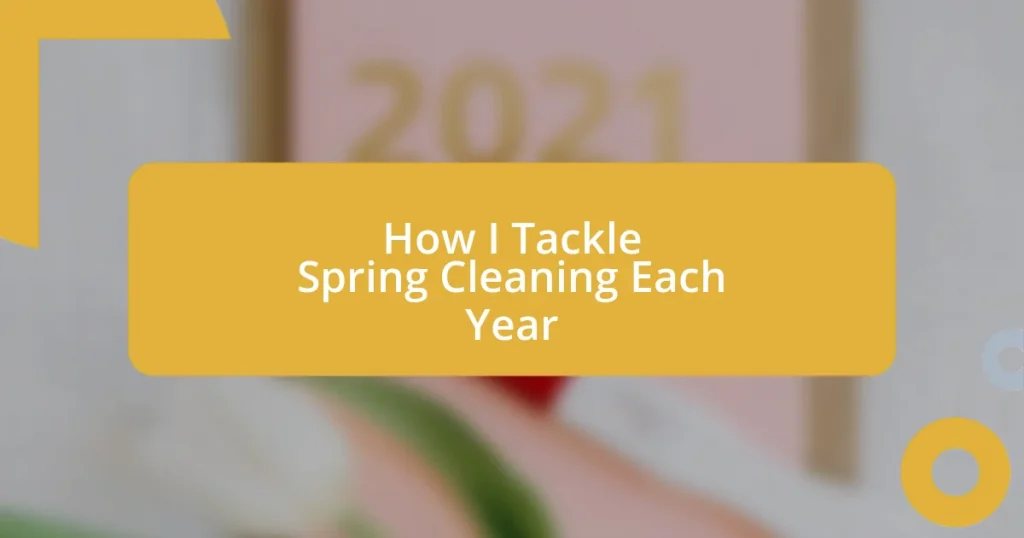Key takeaways:
- Switching to biodegradable and plant-based dishwashing products significantly reduces toxic chemicals and environmental impact.
- Adopting sustainable practices, such as using reusable tools and optimizing water usage, enhances eco-friendliness and personal satisfaction in dishwashing routines.
- Choosing transparent, ethical brands like Seventh Generation, Ecover, and Blueland fosters responsible consumerism and supports sustainable practices.
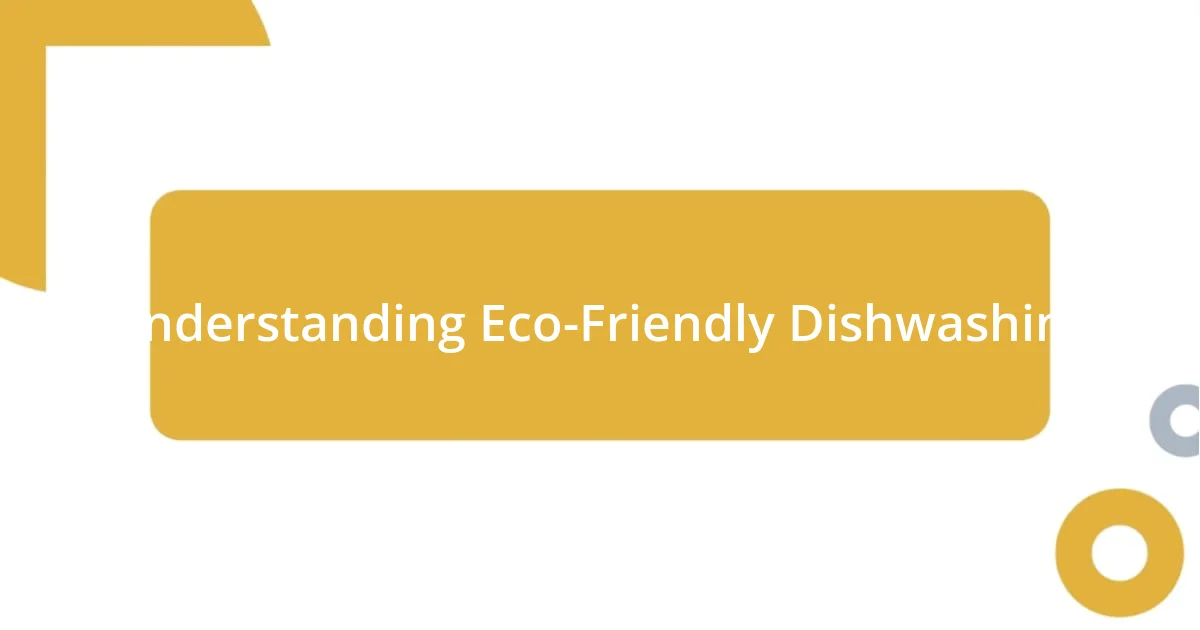
Understanding Eco-Friendly Dishwashing
When I first started exploring eco-friendly dishwashing options, I was surprised to find that even small changes can have a significant impact on the environment. For instance, using biodegradable dish soap not only helps reduce plastic waste but also ensures that harmful chemicals don’t end up in our waterways. Have you ever thought about where those suds travel after they go down the drain?
One of the most enlightening moments for me was realizing that eco-friendly practices extend beyond just the products we use. I began incorporating reusable dishwashing tools like bamboo brushes and cloths instead of the disposable sponges I used to rely on. It’s a simple switch, but it made me feel connected to the process of doing my dishes. There’s a certain joy in knowing I’m making conscious choices.
Have you ever considered how your washing techniques contribute to sustainability? I learned that using colder water not only saves energy but still effectively cleans, which was quite the revelation for my routine. It’s fascinating how these mindful decisions can transform what often feels like a mundane chore into an opportunity to make a positive impact.
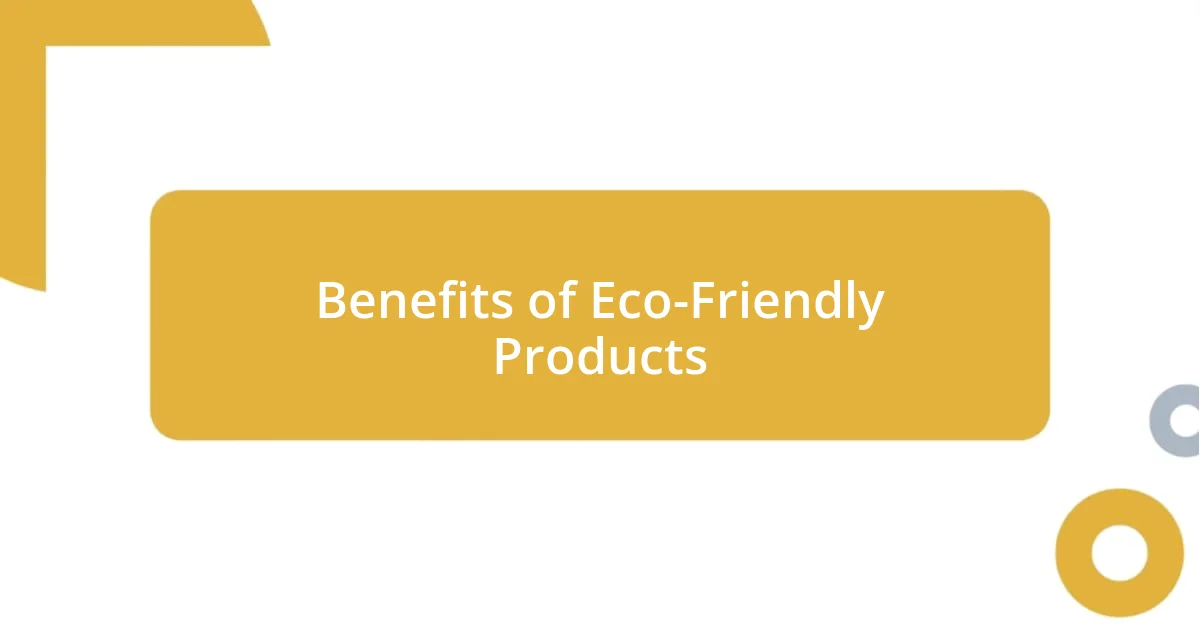
Benefits of Eco-Friendly Products
There’s something incredibly rewarding about using eco-friendly products. I remember the first time I washed my dishes with a plant-based detergent—it was almost like a lightbulb moment. Not only did the dish soap smell fresh and natural, but I also felt a sense of pride knowing I was supporting sustainable practices. The benefits extend far beyond my kitchen; they contribute to cleaner oceans and healthier ecosystems.
Consider these advantages of eco-friendly products:
- Reduced Toxicity: They minimize harmful chemicals that can leach into the soil and waterways.
- Biodegradability: These products break down naturally, reducing landfill contributions.
- Sustainable Sourcing: Often made from renewable resources, which lessens environmental impact.
- Healthier Home: Lower exposure to harmful substances means a safer environment for my family.
- Support for Ethical Companies: Purchasing eco-friendly products often means backing brands committed to sustainability and social responsibility.
Switching to eco-friendly dishwashing has transformed my mindset about cleaning. I’ve learned to value the impact of my purchases, reflecting on how each choice aligns with a larger purpose. It’s a daily reminder that even the smallest steps can lead to meaningful change.
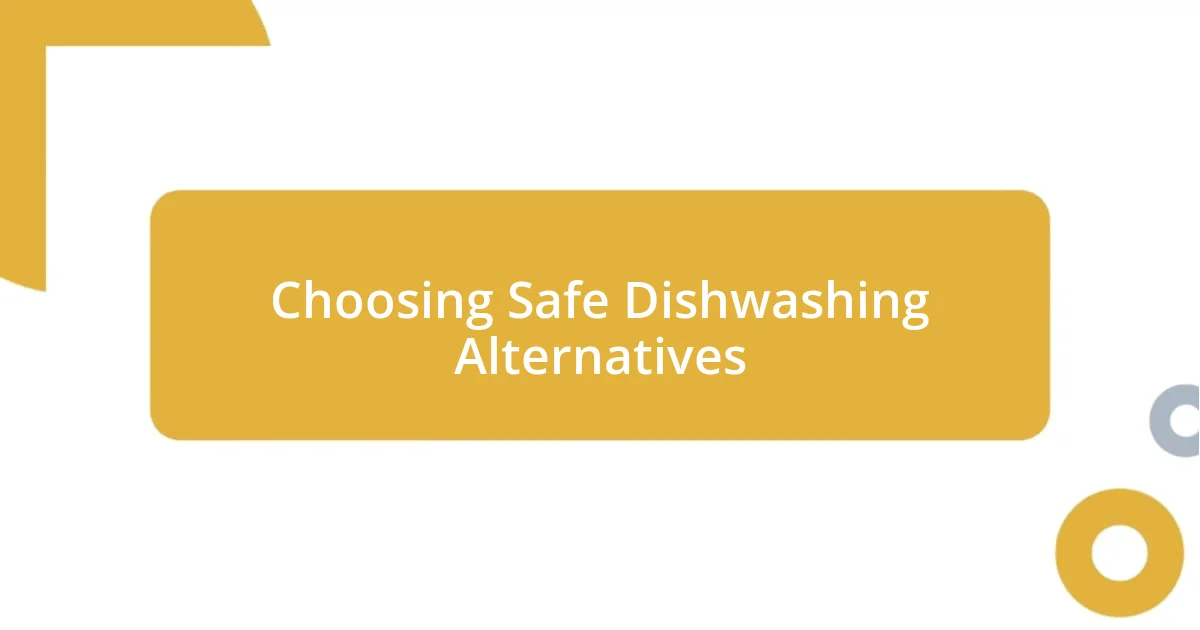
Choosing Safe Dishwashing Alternatives
Choosing safe dishwashing alternatives can feel overwhelming at first, given the myriad of options out there. However, I found that reading labels and researching ingredients can be surprisingly enlightening. For example, I once overlooked the fact that some ‘natural’ products still contained phosphates, which can harm aquatic life. When I switched to phosphate-free options, I felt a sense of relief knowing I was not contributing to that problem. Have you ever checked the ingredients in the products you use daily?
Furthermore, I’ve come to appreciate brands that are transparent about their sourcing and production processes. It’s a bit like joining a community of conscious consumers. I recall the day I purchased a dish soap made entirely from edible ingredients—no harmful chemicals, just soap made from oils. I remember the pride I felt when I realized that not only was it safe for my family, but it also posed no threat to the environment. It’s wonderfully refreshing to align my choices with my values.
A common question arises: how do these alternatives really perform? Initially, I was skeptical about whether eco-friendly products could tackle tough grease. However, my experience has shown me that many plant-based soaps can hold their own against traditional counterparts. After trying a few, I found myself using less water and feeling good about my cleaning efforts. It’s amazing how the right products can change your perception of cleaning!
| Product Type | Key Features |
|---|---|
| Plant-Based Soap | Biodegradable, non-toxic ingredients, effective against grease |
| Phosphate-Free Detergents | Safe for aquatic life, sustainable production practices |
| Reusable Tools | Reduces waste, versatile (e.g., bamboo brushes) |
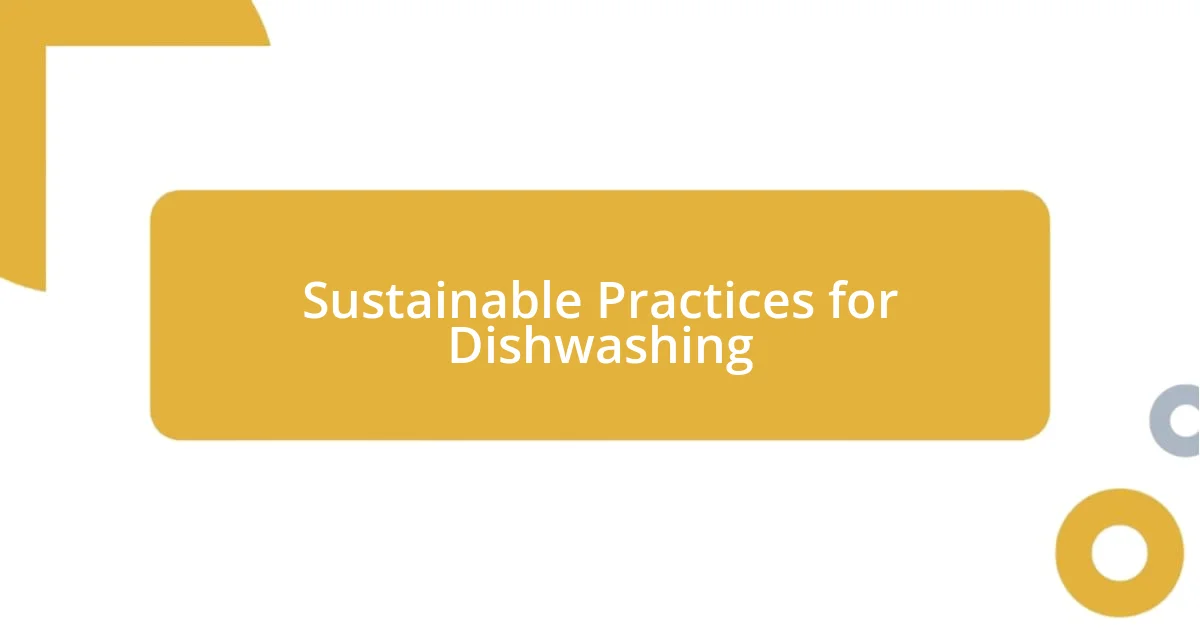
Sustainable Practices for Dishwashing
Sustainable dishwashing practices go beyond just using eco-friendly products; they also involve how we approach the entire process. I discovered the joy of using reusable dish cloths instead of disposable sponges. At first, I was skeptical, wondering if they would do the job just as well. But after a week of use, I found them surprisingly effective, and there was something deeply satisfying about tossing them into the wash instead of sending sponges to the landfill.
Another practice I’ve embraced is optimizing my dishwashing routine to conserve water. By filling the sink instead of letting the tap run, I cut my water use significantly. It was eye-opening to realize how much water we waste in the name of cleanliness. Have you ever measured how much you use? I made a habit of using a basin for rinsing, which not only saves water but also allows me to notice how little soap I need for a sparkling clean.
Finally, I’ve started growing my own herbs, like mint and rosemary, to use in my homemade, natural dish soaps. It sounds a bit unconventional, right? But blending these fragrant herbs with simple ingredients like baking soda and vinegar has been a game changer. Whenever I wash my dishes, the fresh aroma fills my kitchen, giving me that little boost of joy and connection to nature. It’s remarkable how integrating simple, sustainable practices into our daily lives can foster both environmental consciousness and personal satisfaction.
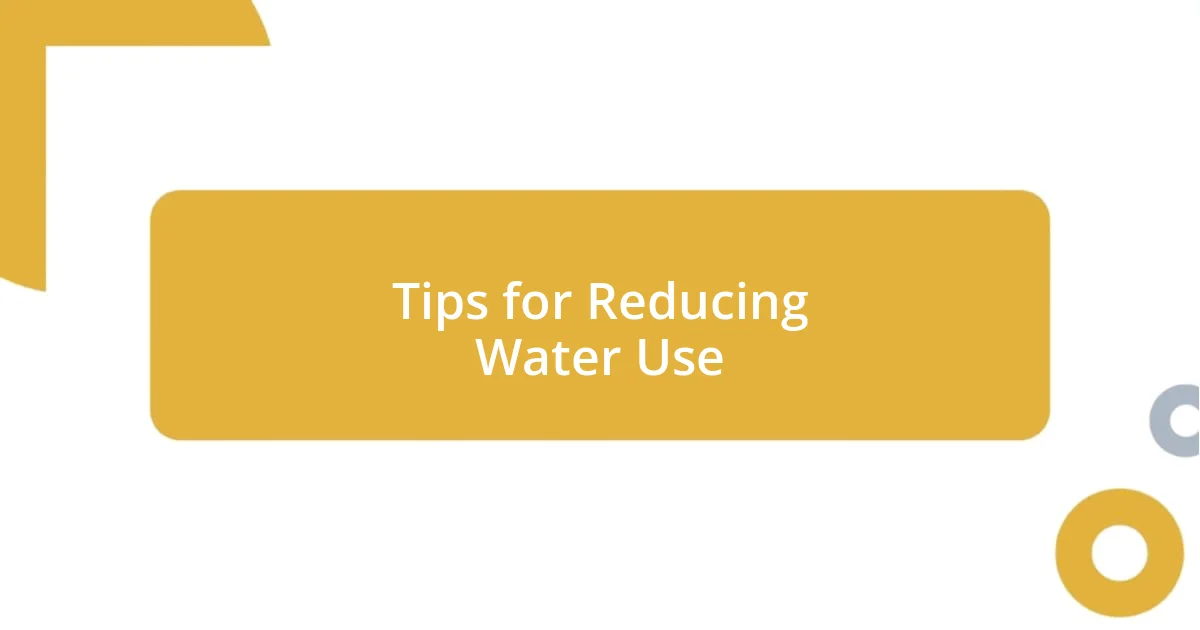
Tips for Reducing Water Use
When it comes to reducing water use while dishwashing, I’ve found that adopting a two-basin system can make a world of difference. One basin for washing and another for rinsing lets you control the flow of water much better. I remember feeling overwhelmed the first few times I tried this method, but it transformed my dishwashing routine into a more mindful practice. Have you ever noticed how much water we simply let run while rinsing? It’s quite shocking!
An easy habit to adopt is to pre-soak dishes before a full wash. When I started doing this, I realized I could often get away with less water overall. Just a quick soak can make scrubbing easier, allowing me to use a gentle touch with minimal water. This method not only cuts down on water use but also reduces the time I spend cleaning dishes. Each time I soak, I feel a sense of accomplishment, knowing I’m doing my part for the environment.
Lastly, I began to practice “smart loading” in my dishwasher. I was amazed by how much water I saved when I only ran the dishwasher with a full load. I even set reminders in my calendar to keep up with this practice. After experiencing the difference in water bills, it became a no-brainer! Can you relate to that feeling of satisfaction when you see the positive impact of a small change? It’s these little adjustments that build up over time and really contribute to a more sustainable lifestyle.
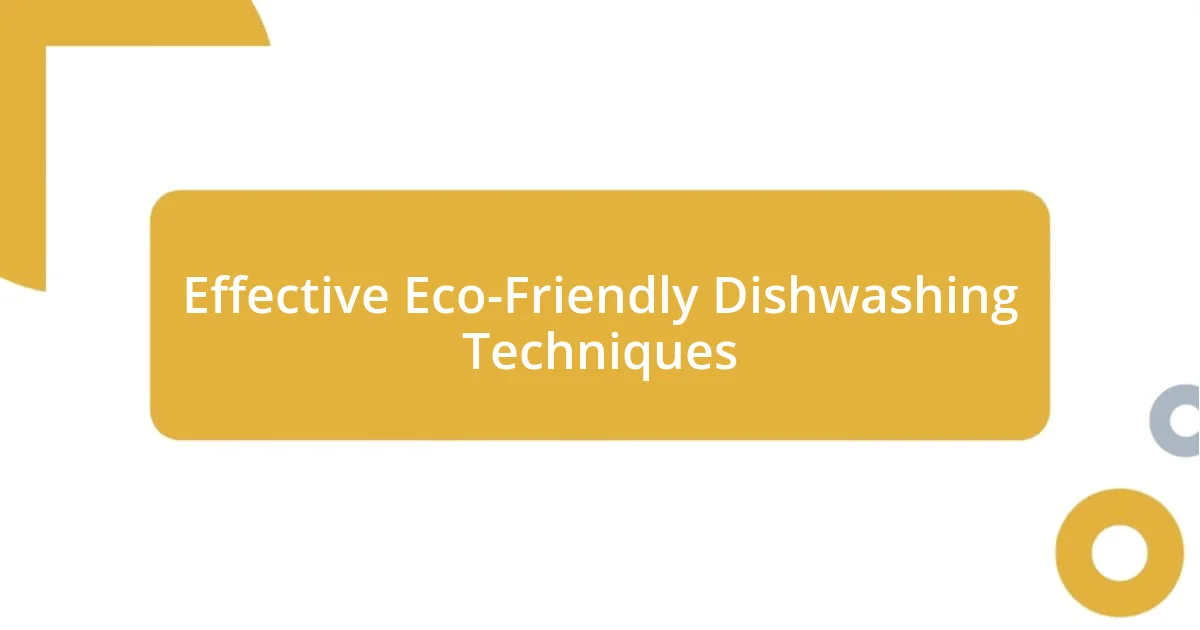
Effective Eco-Friendly Dishwashing Techniques
One technique I’ve integrated into my dishwashing routine is using biodegradable dish brushes. At first, I was hesitant, thinking a brush wouldn’t clean as effectively as a traditional one. But when I took the plunge and swapped it out, I noticed not only how well it performed but also how great it felt knowing I was using a product designed to break down naturally. Have you ever experienced that satisfaction of using something that aligns with your values?
I’ve also found that making my own dish soap has been an exciting adventure. Mixing simple ingredients like castile soap, water, and a few drops of essential oils has transformed my dishwashing experience. The moment I put the mixture into a glass bottle, it felt like I was adding a touch of joy to a mundane task. And let’s be honest—who doesn’t appreciate a fresh, uplifting scent while tackling a pile of dirty dishes?
Another effective technique I’ve adopted is rinsing my dishes with cold water before washing them. It seems counterintuitive, but this little step helps remove food residues more easily. I recall being surprised by how much I was able to eliminate before even starting the actual wash. It makes me wonder, how many little habits can you change to revolutionize your cleaning routine? Embracing these changes not only lightens the load in my kitchen but also reinforces my commitment to eco-friendly practices.
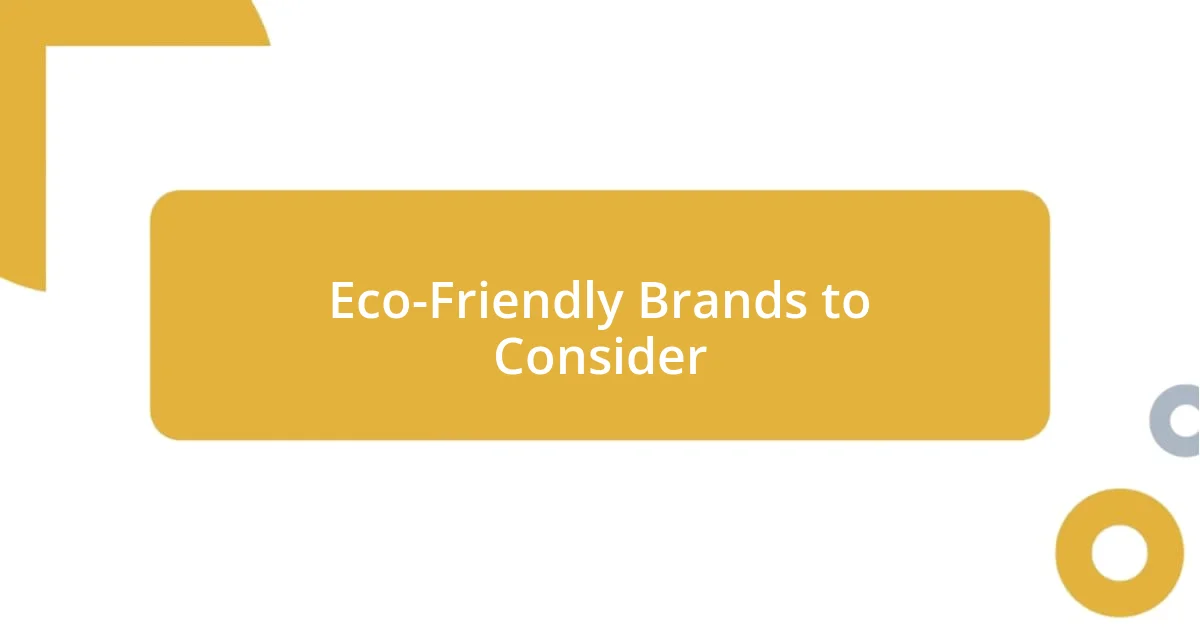
Eco-Friendly Brands to Consider
When considering eco-friendly dishwashing brands, I can’t help but mention Seventh Generation. Their products not only have a minimal environmental impact but also leave my dishes impeccably clean. I remember the first time I used their dish soap; the pleasant scent filled my kitchen, and it felt good knowing I was making a responsible choice without sacrificing quality. Have you ever used a product that made you rethink your entire approach to cleaning?
Another brand I find myself reaching for is Ecover. Their commitment to plant-based ingredients really resonates with me because it mirrors my own values. I still recall the time I shared a bottle with a friend who was skeptical; after just one wash, they were converted. They couldn’t believe how effective it was—and let’s be honest, that satisfaction of sharing knowledge feels so gratifying!
Lastly, don’t overlook Blueland, especially if you’re into reducing plastic waste. I love their tablet system for dishwashing; it’s like a game-changer! This innovative approach not only dramatically cuts down on packaging but also helps me feel connected to my commitment to sustainability. When I first unpacked their reusable bottles, it sparked a whole new sense of ownership in my eco-friendly journey. How about you—are you ready to take that step towards a greener kitchen?










